The outdoor community is missing a critical opportunity to get what everyone wants … a healthier environment
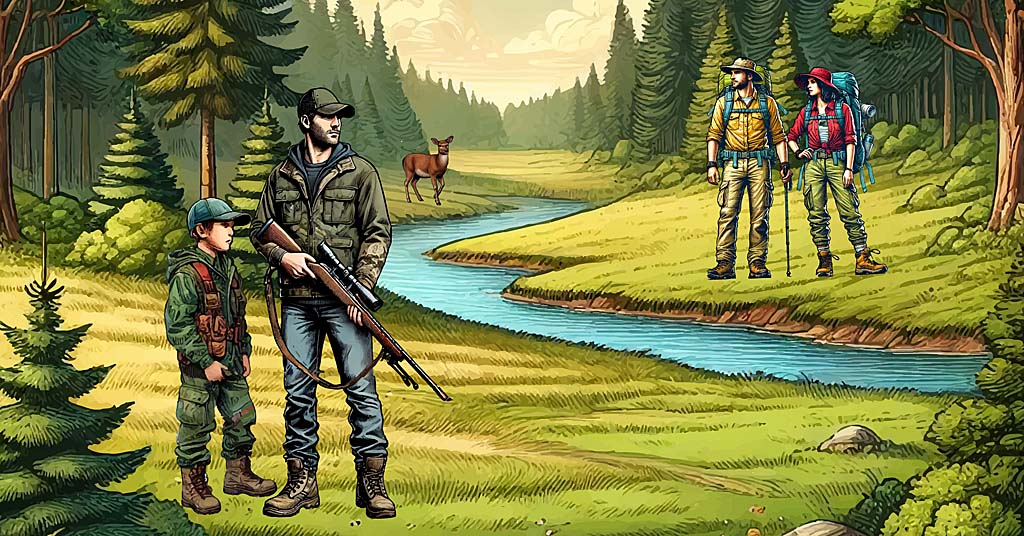
Divided by: Recent events in Washington have made hunters and enviros appear on opposites of many issues. In reality, they’re not. Illustration: Mackenzie Miller
Following the overwhelming response to our Jan. 2, 2025, story about the increasingly dysfunctional relationship between hunters and environmentalists in Washington (Report raises possibility of doing away with Wash. Fish and Wildlife Commission), we asked noted hunter, editor, author and environmental steward Andrew McKean to weigh in. —Editor
By Andrew McKean. January 23, 2025. The woods and waters of the West don’t seem like battlefields. But there’s a caustic and unproductive war raging that divides those of us who cherish our public lands and rivers in the same and different ways.
This conflict is between those who hunt and fish and those who think we should reserve wildlife and the places they live for less transactional purposes.
Categorization is imperfect and imprecise, but let’s call the two groups hunters and non-hunters (with the understanding that plenty in both camps understand and respect the others’ position and that in many ways anglers bridge the distance between the two).
More problematic than categorization is that the conflict between these two groups is largely manufactured.
At trailheads across the West, we all sorta get along. It’s when we’re back on our computers and phones, especially when we’re trying to influence our neighbors about public land and wildlife management issues, that we demonize each other.
You’ll recognize this vilification when you listen to how we talk about “the others.”
Non-hunters describe hunters as selfish anachronisms engaging in a “sport” that, given the massive advantage provided by modern weaponry and tactics, amounts to little more than cruel and senseless slaughter—almost no one needs to kill a wild animal in order to feed their families, and let’s not get started on the pathetic “trophy photos” that must commemorate every animal’s death.
Hunters dismiss critics as city-dwelling, self-loathing softies who couldn’t build a campfire without a YouTube tutorial yet who possess the stunning lack of self-awareness to stand on soap boxes trying to restrict or even eliminate centuries-old rights and traditions that still matter to a helluva lot of Americans, even if they are in the minority of public opinion polls—and whose hypocritical allegiance to “diversity” and “inclusion” extends only to those groups with whom they share a system of perceived liberal values.
If you want to hear these disparagements find a broader voice, sit in on a Washington Fish and Wildlife Commission hearing. The rift between hunters and non-hunters is on full display, as hunters and anglers cling to dwindling influence over wildlife management while more numerous non-hunters want the agency to re-wild Washington.
Mundane discussions over hunting seasons and fisheries plans have blown up into purity tests of competing worldviews.
Common problems
The trouble with widening the schism that divides outdoors advocates is that while we’re demonizing each other, we’re allowing our common adversaries to get away with … let’s call it murder.
The appalling amount of wildlife killed by cars every year on America’s highways is many times the number of animals killed selectively by hunters.
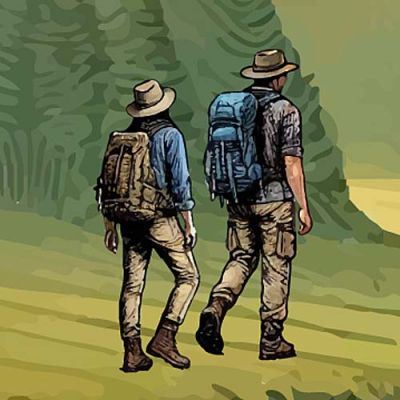
Buddy system: No matter what they carry, everyone in the woods is a hiker. Illustration Mackenzie Miller
The rate of development of homes for seasonal residents leading to habitat loss on winter range, forest and foothills around the West is staggering.
Our rivers are running warm and green with effluent from rural subdivisions and chemically dependent farmers.
Our highways sever big-game migration routes.
Our wildlife is sick and getting sicker.
We’re a couple mega-fires away from losing even more huge chunks of Western forests.
Meanwhile, funding for natural-resource management and land conservation is pitifully low for a developed nation, especially one whose parks system remains the envy of the world.
Western politicians, once defined as pragmatists, are either in a fever-dream of oil-drilling, public-land-hating MAGA signaling, or apologizing for not being more diverse and inclusive.
Given these common adversaries, outdoors advocates—that means hunters and non-hunters—need each other more than ever.
Yet both groups continue to find fault with each other rather than do the hard work of reforming our shared natural world.
The need for “unconditional wins”
How did we get to this absurd dichotomy?
After all, a long generation ago, hunters and anglers helped pass the Wilderness Act of 1964, one of America’s greatest conservation achievements, which today protects nearly 112 million acres of National Wilderness, including 66 Wilderness areas in the Pacific Northwest stretching from the Olympic Peninsula to the Rogue River.
Hikers and paddlers were once reliable supporters of acquisition of fishing access sites.
We all require biodiversity for our own health and the health of the places and animals we cherish.
You’ll hear that the problem is cultural. That enviros who grew up in the suburbs can’t understand killing for food just as hunters can’t admit to climate change even as snowpacks dwindle, aquifers dry up and their communities burn.
I think that’s too easy.
Instead, I’d argue that the enemy of amity is structural.
We’ve built organizations to drive our respective missions. These groups—Rocky Mountain Elk Foundation, Sierra Club, National Rifle Association, Oregon Wild, Northwest Steelheaders and a hundred others—require conformity to be successful.
They also require demonstrated victories to justify their existence, and every victory requires an enemy to be vanquished. Organizational success is measured by battles engaged and won, of coups counted.
Sometimes, it’s necessary to invent a battle to stay in the war, even if the battle is largely performative.
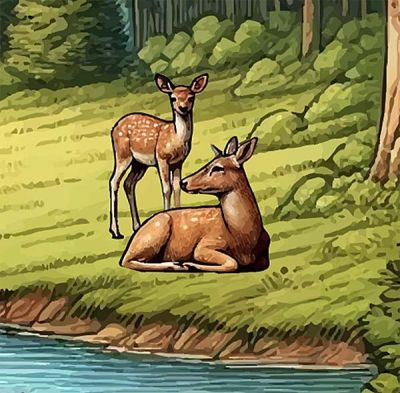
Peace and prosperity: Wildlife represent different things to different people at different times. Illustration: Mackenzie Miller
A friend of mine who lobbies for hunting groups in state legislatures around the West told me that he talks all the time with fellow lobbyists for green groups. They share meals and beers and leads on legislation. They also tend to hide these relationships from their constituencies.
In public, of course, the relationships have become increasingly strident as militants on both sides seek not only disruption but unconditional wins.
Non-hunters are seizing moments of political strength to force institutional change.
Aware that demographics aren’t on their side, hunters are seeking defining wins in the courts and Trump administration.
This discord keeps us from collaborating on urgent work.
We have a huge and growing deficit in our capacity to restore impaired habitats. We need more seedlings for sagebrush and bitterbrush restoration; more resources for prescribed burns to help save forests from wildfires; more political support for conserving watersheds for anadromous fish; and more resources for un-hunted and un-fished species.
As water flows in the West becomes less reliable, we need to advocate together for in-stream flows for fish and aquatic habitats; to fight the chokehold of invasive species; and to stop the dangerous movement to sell off our public lands.
In many Western states, a durable coalition of hunters and environmentalists would be enough to turn the results of elections.
Given the sophistication of our outreach—organizational and cultural—a coalition of hunters and non-hunters could tap into the current of a coming generation that’s seeking authentic relationships with nature, reconnection with the land, the challenge of the hunt and the hike.
But as long as we invent ways to win little cultural skirmishes between ourselves while we prepare for knockout blows, we’ll miss the chance to engage with our mutual adversaries, and risk losing much more than a hunting season or a wilderness designation.
The views expressed in this article belong solely to its author and do not necessarily reflect the opinions of anyone else associated with Columbia Insight.


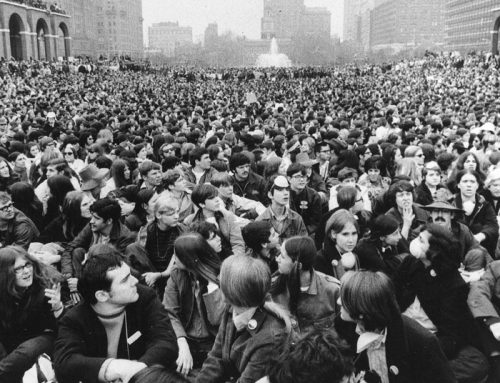
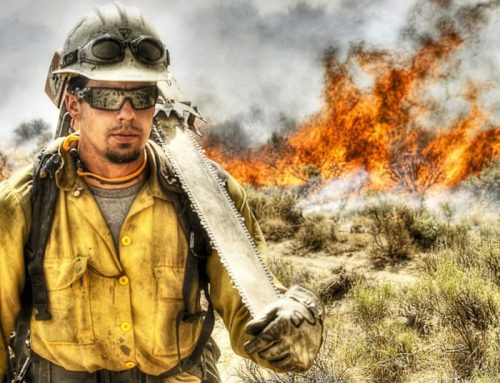
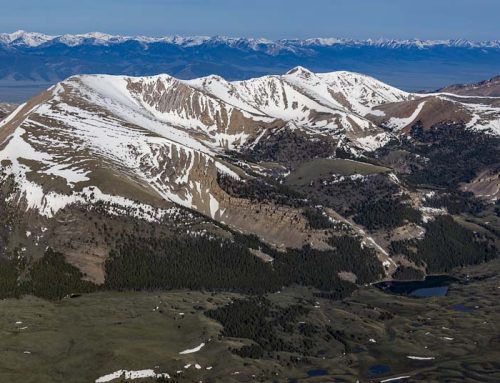
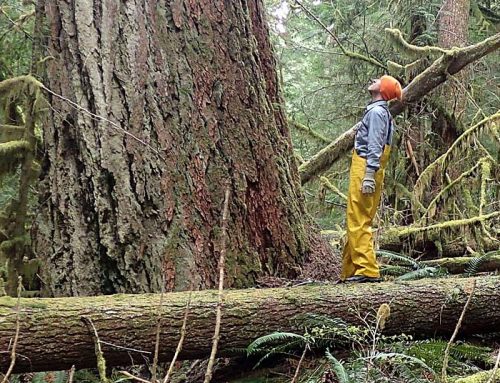
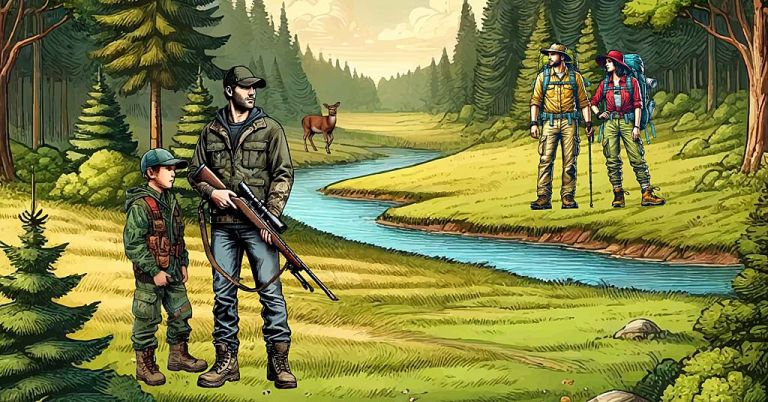
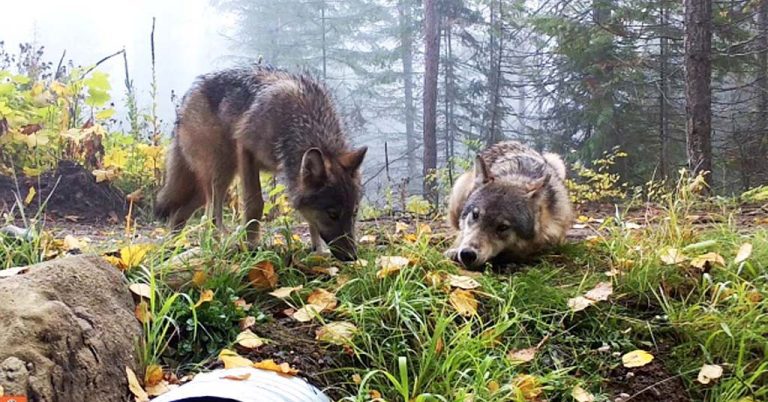
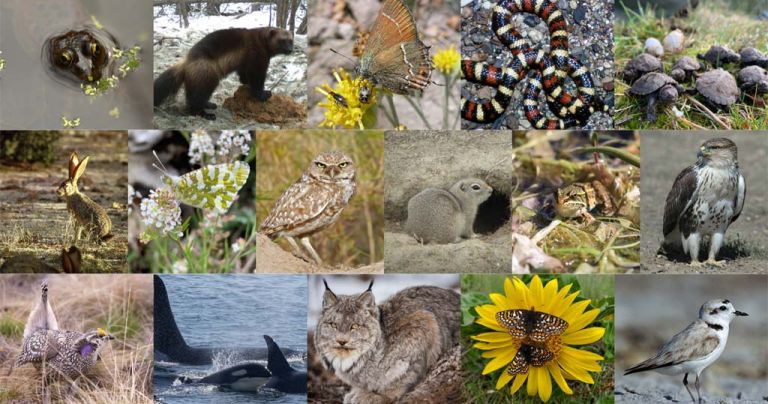
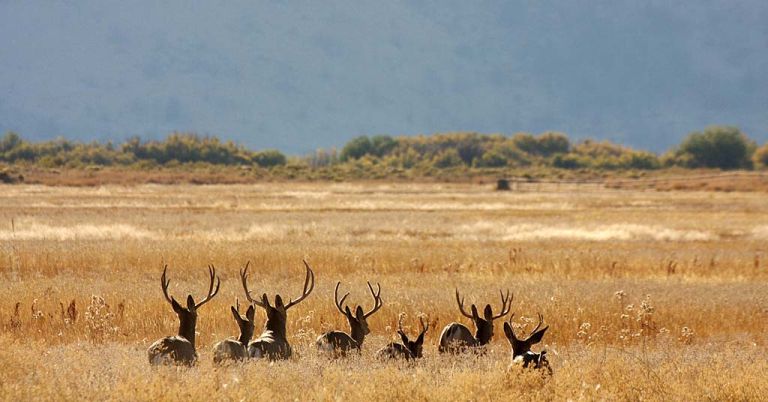


Andrew, you obviously aren’t paying attention to to “both sides” as you suggest environmentalists claim hunters are “selfish anachronisms engaging in a “sport. ” I’m a hunter/fisher and that is not what I have heard nor ascribe to. It’s hyperbolic conspiracy better fit for Fox so-called News and most certainly a meme that formerly conservation-minded groups like Rocky Mountain Elk Foundation and Backcountry Hunter’s and Anglers often now, repeat.
Try listening to recorded public testimony to the WA Fish & Wildlife Commission – that is not what’s been said nor does it accurately reflect the statements of Washington environmental groups. I recently chided the above and other groups for not engaging in federal and state forest management issues. It seems fish & wildlife habitat has taken a back seat to fear mongering about “anti hunting” when the issue is meeting public trust responsibility. Hunters and fishers should (and in most cases, do) support conservation measures to protect and restore wild fish and maintain healthy wildlife populations. Considering such a perspective, what’s the big deal with FWC reducing cougar mortality to 13% of estimated population? What doesn’t make sense in allowing mortality of 20% if the 13% threshold is reached by September 1 and beyond what state biologists recommend. Where’s the conservation in that?
I do agree that there is a natural fit between fish/hunt and wildlife viewing and hiking – aka: habitat, scenery, wildlife security and human health. That’s how I got my start. And to suggest – as hunter groups espouse – that reducing bag limits is the same as calling for a demise of hunting, is incongruous.
Andrew – great column! You described the forces dividing or (someday) binding the two camps without blatantly choosing sides and making it a good-guy vs bad-guy story. We need more commentators capable of seeing both sides of an issue.
Question. Who are the environmentalists and who are the hunters/fishermans?
Some so called environmentalists has no idea about nature
Sadly, some hunters /fishermen, are wannabes.
I know that who ever takes charge of the forests, and all that lives in them, has to have some ON THE JOB TRAINING.
For it’s a bit different to only read than to go out and see and learn on what’s happening in the forests.
I know one thing for sure, we do not need some city folks telling mountain people how to protect our forests, for they do not know what they are talking about.
Limiting the take of meat, fine and dandy. For if we let the animals get overpopulated, then they will get sick, starve and die. Quite a few animals gets killed by automobiles.
Hey Frank Shaw – creating a “city folk” vs “country folk” dynamic is just what the article warns against. Plenty of people in cities know a lot about forest and wildlife management as do plenty of country folk. Plenty of folks in both areas also don’t know anything. What we need more of are respectful conversations in which folks from different perspectives share their values and knowledge and listen to each other to learn and find common ground.